22 English Tea
From Rita to late Macca and 'English Tea' - it's "very Alice"
Each week in Alice & The Eggman we explore the links between the world of Lewis Carroll and The Beatles work. It’s often sardonic and surreal, but sometimes it’s also about the lineage of Englishness. And this week we’re talking about tea.
We probably don’t need reminding of the importance of tea-time in English culture, but it is worth taking a pause to look at Lewis Carroll since the Hatter’s tea party plays such a crucial role in Alice’s adventures.
There was a table set out under a tree in front of the house, and the March Hare and the Hatter were having tea at it: a Dormouse was sitting between them, fast asleep, and the other two were using it as a cushion, resting their elbows on it, and talking over its head. “Very uncomfortable for the Dormouse,” thought Alice; “only, as it’s asleep, I suppose it doesn’t mind.”
The table was a large one, but the three were all crowded together at one corner of it: “No room! No room!” they cried out when they saw Alice coming. “There’s plenty of room!” said Alice indignantly, and she sat down in a large arm-chair at one end of the table.
Lewis Carroll, Alice’s Adventures in Wonderland (1865)
Here’s Arthur Rackham’s illustration of the scene:
Watch McCartney pre-show or in an interview and you’ll often finding him sipping a cuppa. No tea slouches, those Beatles.1 In fact they often posed with porcelain tea-cups in publicity shots (and thanks to Heather Simmons for reminding me of this fact).
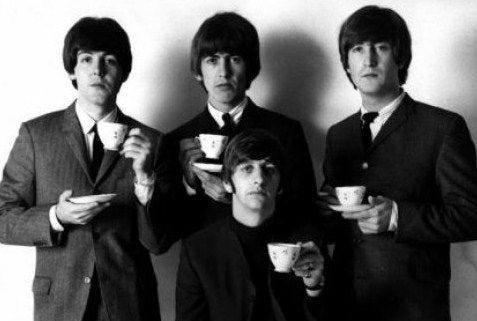
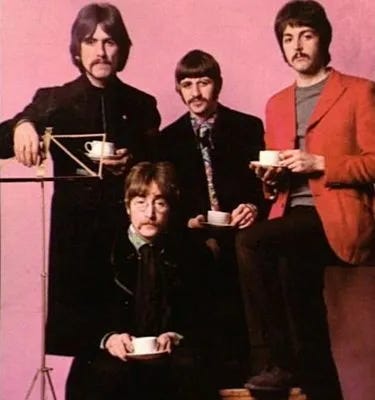
As the world turned into colour in the mid ‘60s, Beatles tea parties became more bizarre, witness the scene in Penny Lane where the hunt party dismounts and sips champagne out of tea cups in a field, at a table with silver candelabras:
And the songs often contain tea-time or tea-party references, though we probably need to remind ourselves that “tea” in the North is a mealtime, not just for beverages.
“Lovely Rita, meter maid, May I inquire discreetly, When are you free to take some tea with me?” (‘Lovely Rita Meter Maid’)
“Found my way downstairs and drank a cup” (‘A Day in the Life’)
“The Duchess of Kirkaldy always smiling and arriving late for tea” (‘Cry Baby Cry’)
“Sail me on a silver sun where I know that I’m free, show me that I’m everywhere and get me home for tea” (‘It’s All Too Much’)
The fact that tea with the Mad Hatter exists in a perpetually frozen 6 o’clock seems all the more poignant in the later Beatles songs because timing (“late for tea” and “get me home for tea”) seems to be such a feature of the ritualised nature of tea as ceremony. And when we remember - thanks Franziska Kohlt - that the Hatter’s tea party satirises the Victorian lunatic asylum tea parties, a picture starts emerging.
But today it’s a late McCartney trifle - ‘English Tea’ that I’d love to dwell on. It’s from what I think must be his mature masterpiece, 2005’s Chaos and Creation in the Backyard, and is inspired not just by older generations, but by the language of tea as an English ritual.
So I just started playing with that idea, of English tea. And then as I say there’s one particular older English person I’m thinking of, who instead of saying ‘Do you want a cup of tea?’ might say ‘Would you care for a cup of tea?’ It’s just the way they say it, and I love that. ‘Would you care?’ and in this case ‘Would you care to sit with me, for a cup of English tea?’ And so I really went to town on that whole fruity way of talking, that whole fruity language that I like. I think it’s very endearing, very English.
My readers will remember that we looked last week at the influence of these kinds of Victorian phrases in the Beatles early work such as “love me do”.
Let’s take a listen.
In case you missed it, there’s a moment in the song where the phrasing becomes much more expansive, connoting the rolling lawns and “miles and miles of English garden […] hollyhocks and roses” in the lyric. What could be more English, and also what more surreal, than these floral tributes, so reminiscent of the “cellophane flowers, that grow so incredibly high” in ‘Lucy in the Sky’, that also frame the Beatles on their “mad day out”:
It’s also reminiscent of the garden in Wonderland and the talking flowers:
‘English Tea’ starts as a simple invitation to tea, but in McCartney’s mind it’s part and parcel of a familiar, yet strange, and uniquely English scene:
And then also, ‘Do you know the game croquet, peradventure we might play/Very gay, hip hooray’. You know, in the old sense of the word ‘gay’, so it was nice, it was that croquet, very English, lawns, hollyhocks, roses, very Alice in Wonderland, that was also in the back of my mind, which influenced a lot of me and John’s writing. ‘Lucy In The Sky With Diamonds’, that’s Alice to us you know. [Sings] ‘Picture yourself…’ The whole idea of ‘picture yourself’, you know, in a boat on a river, very Alice, very Lewis Carroll, It’s just the way I like to write that, so a fruity little song.
-Paul McCartney, Chaos and Creation in the Backyard interview, 2005
Let’s not forget that archetypically bizarre English game, croquet, transformed in Alice into a game played with flamingos and hedgehogs:
Deep in the Beatles imaginary lies a lexicon of English scenes, showing that Alice is more than psychedelic period inspiration, and wider than the familiar characters, it speaks of a whole culture.
See you very soon for an exclusive interview with Robyn Hitchcock where we touch on Carroll as “mental compost fertile minds grew out of” and his song ‘Autumn Sunglasses’ which is inspired by a trip to the Isle of Wight and his regular commutes “through the looking-glass” to Sydney, Australia, that most unfamiliar familiar of places.
Apparently tea is the most mentioned drink in their output: The Beatles and Tea! (This is an oldie that just popped up again) – Mrs. McCartney's Teas


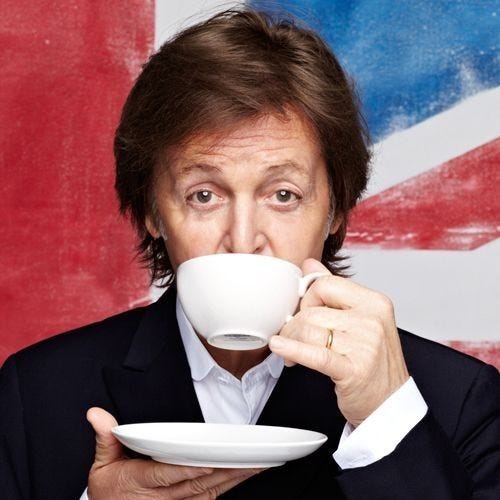
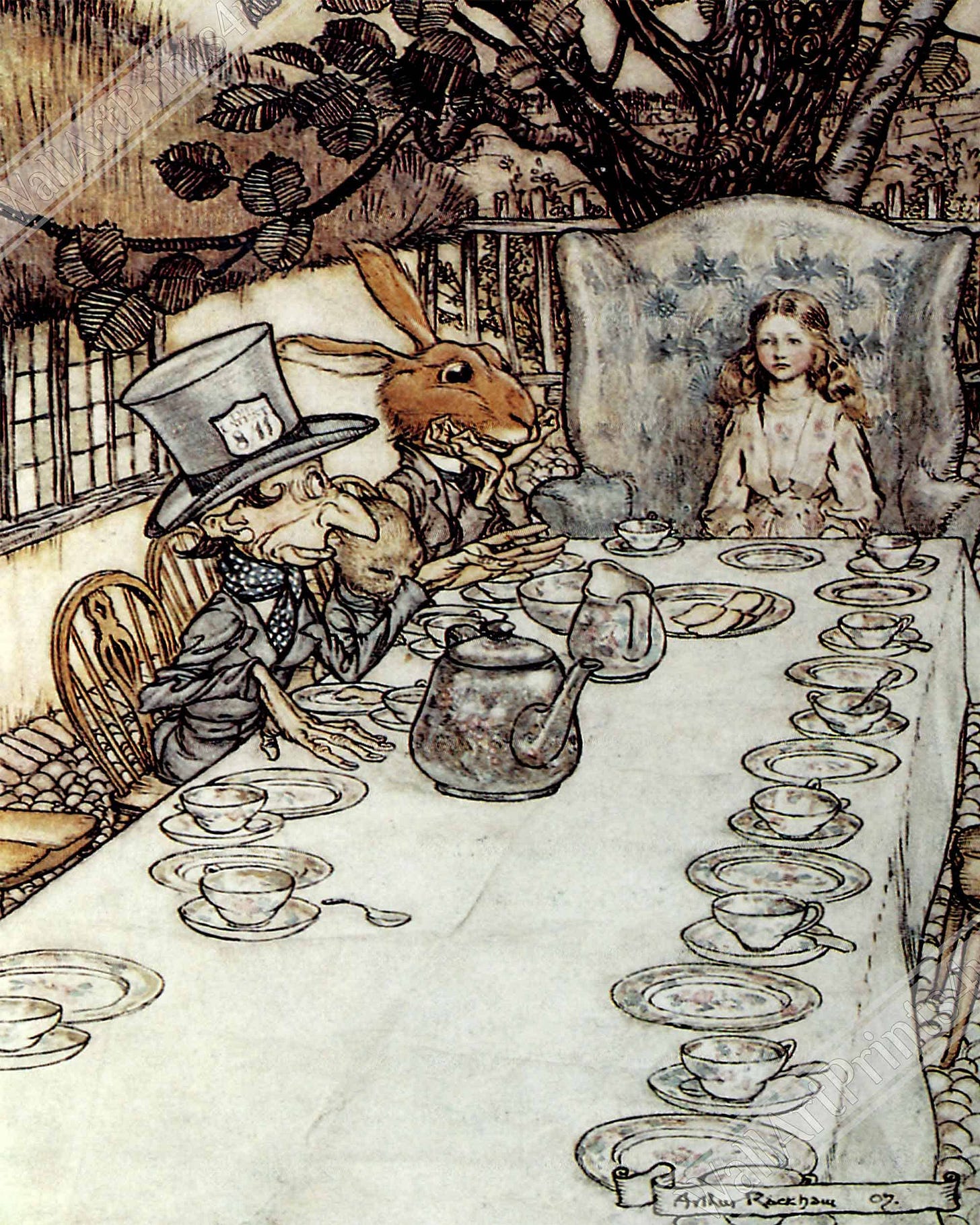
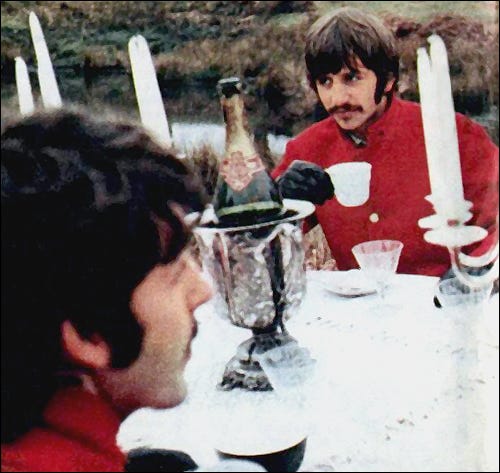
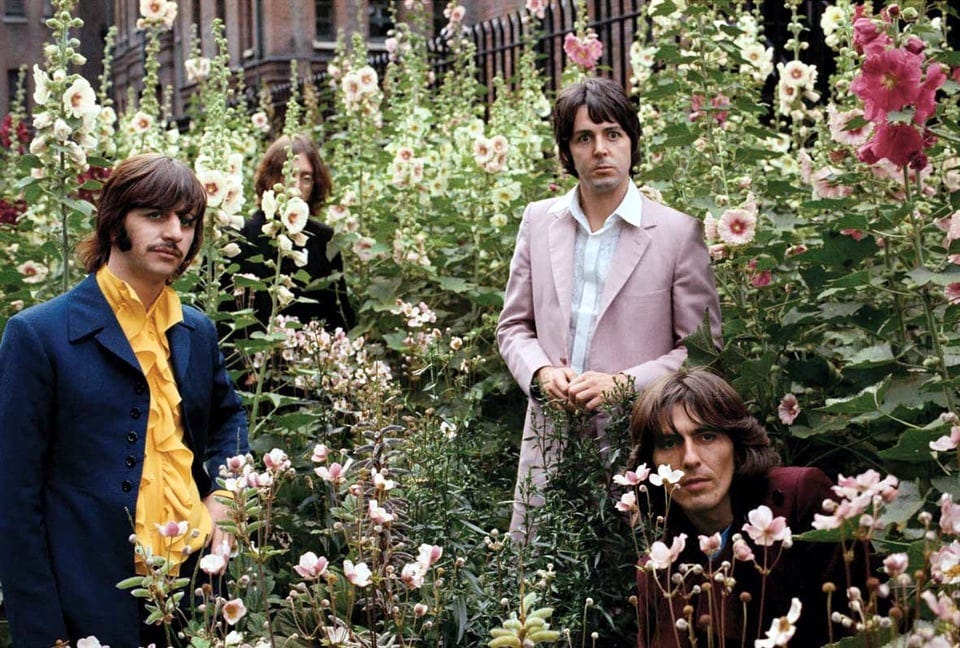

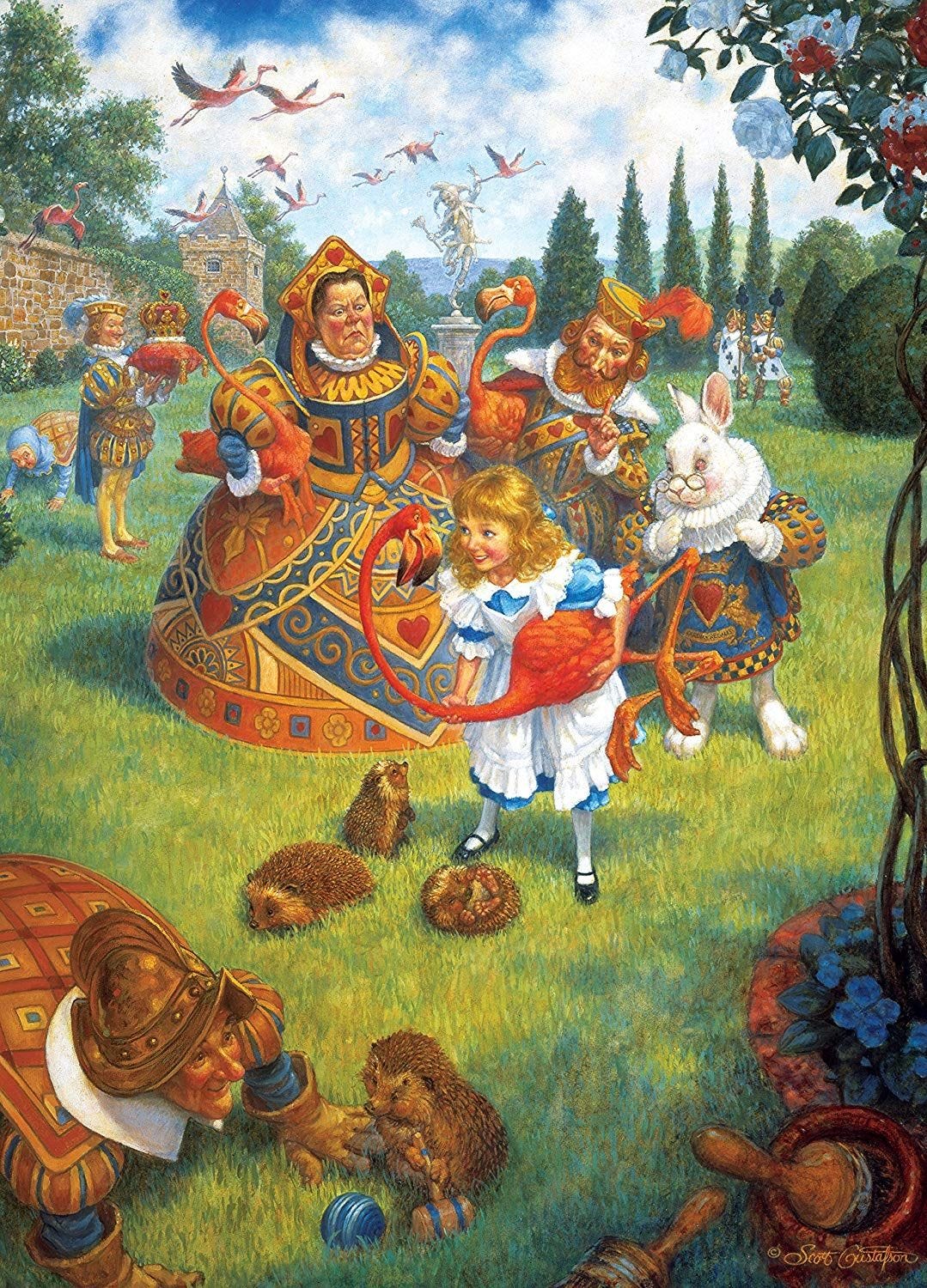
tea-riffic ... who knew of all these connections and connotations? now we all do!